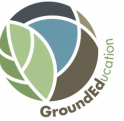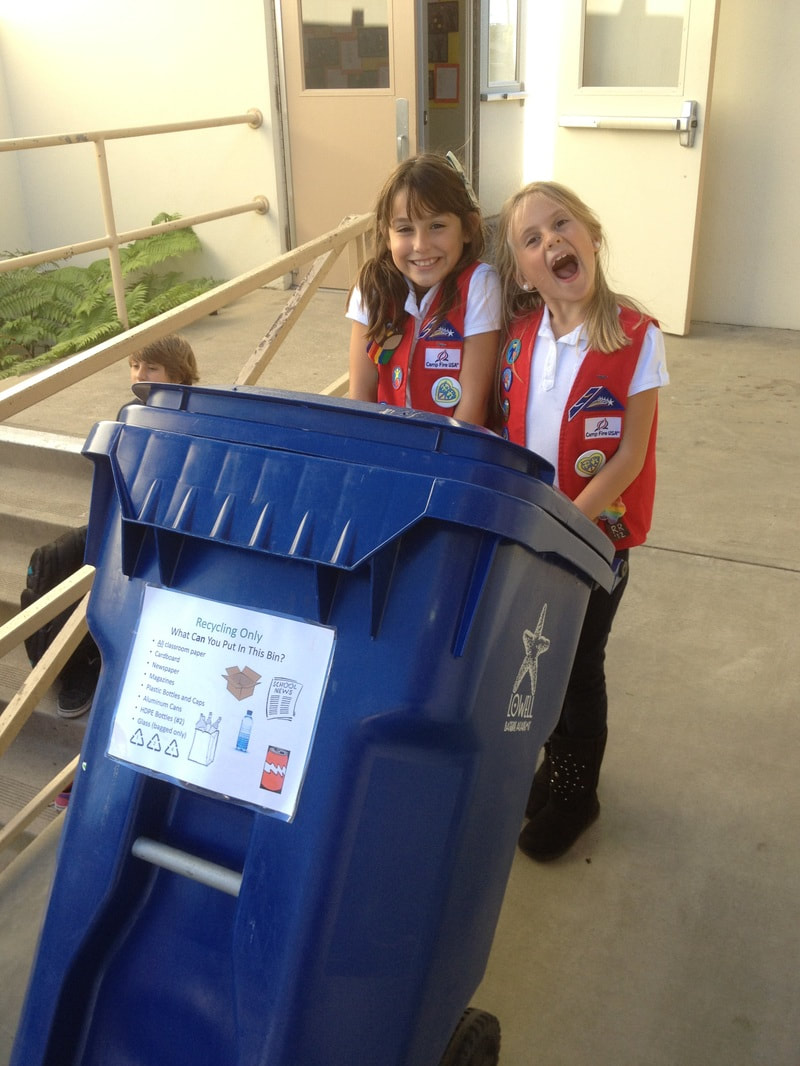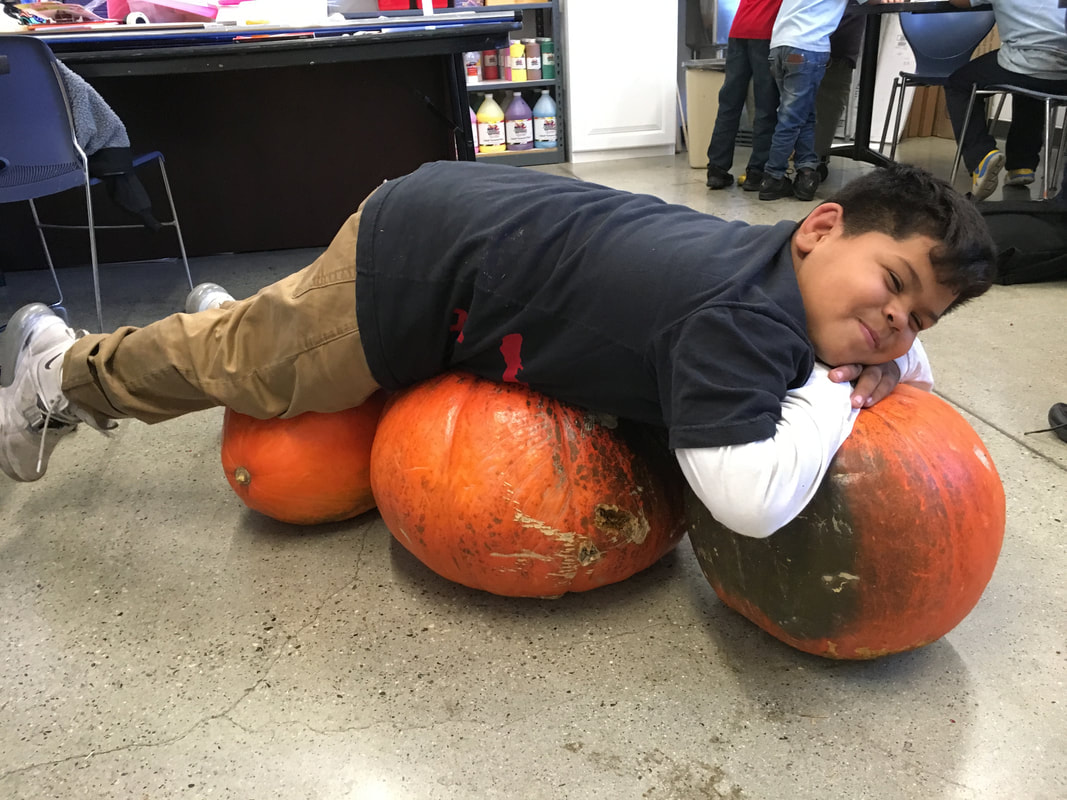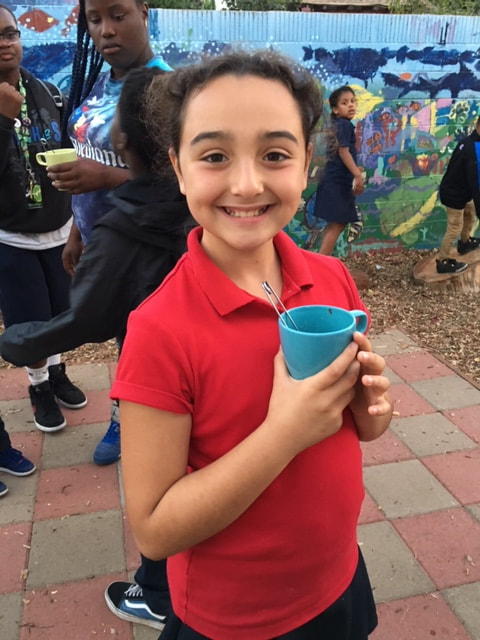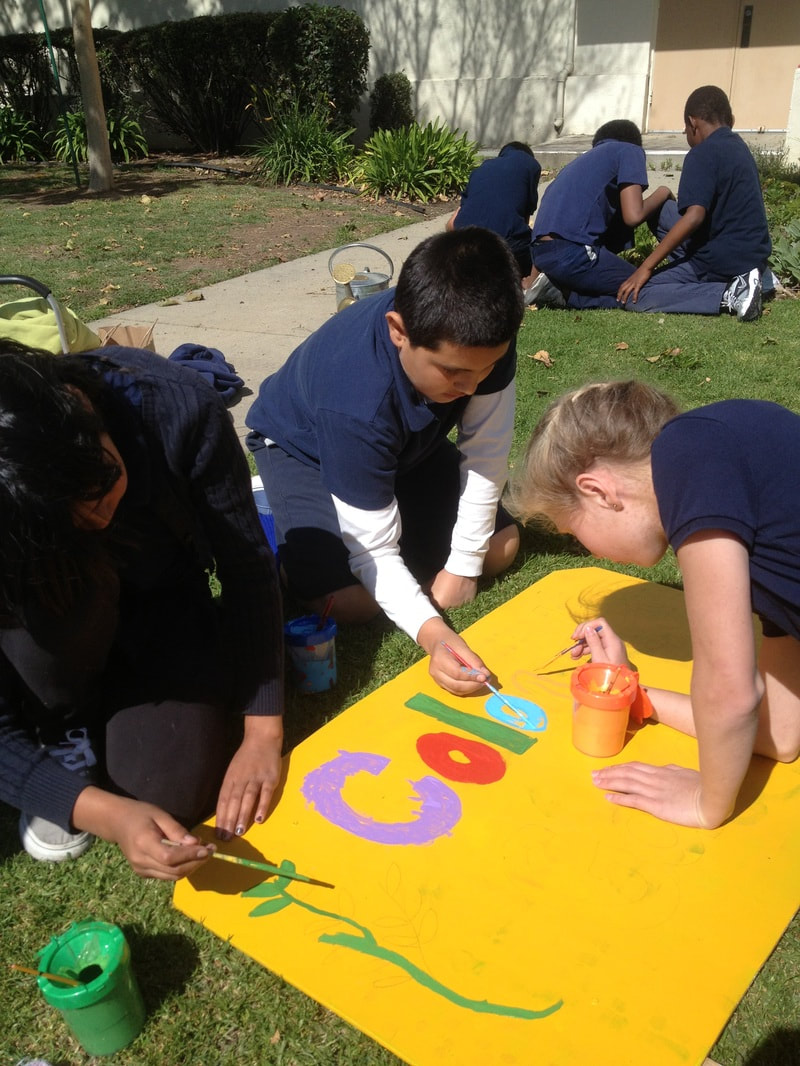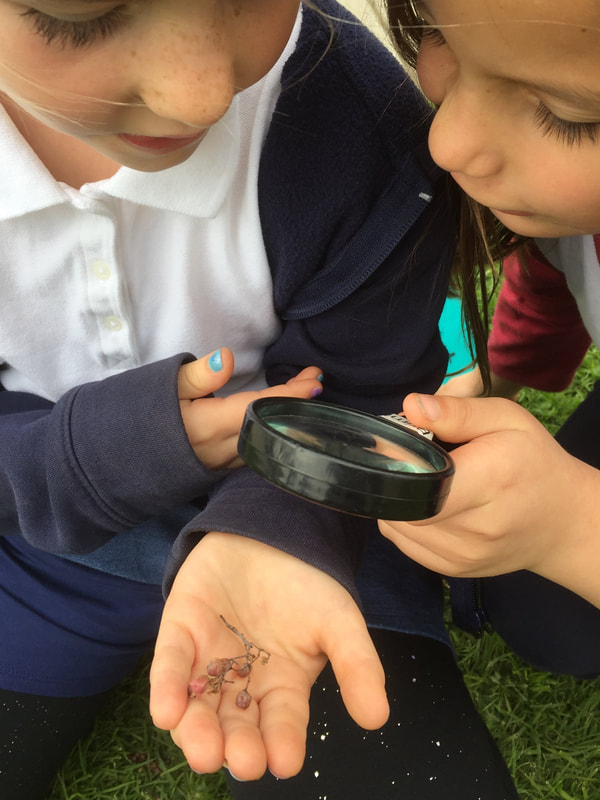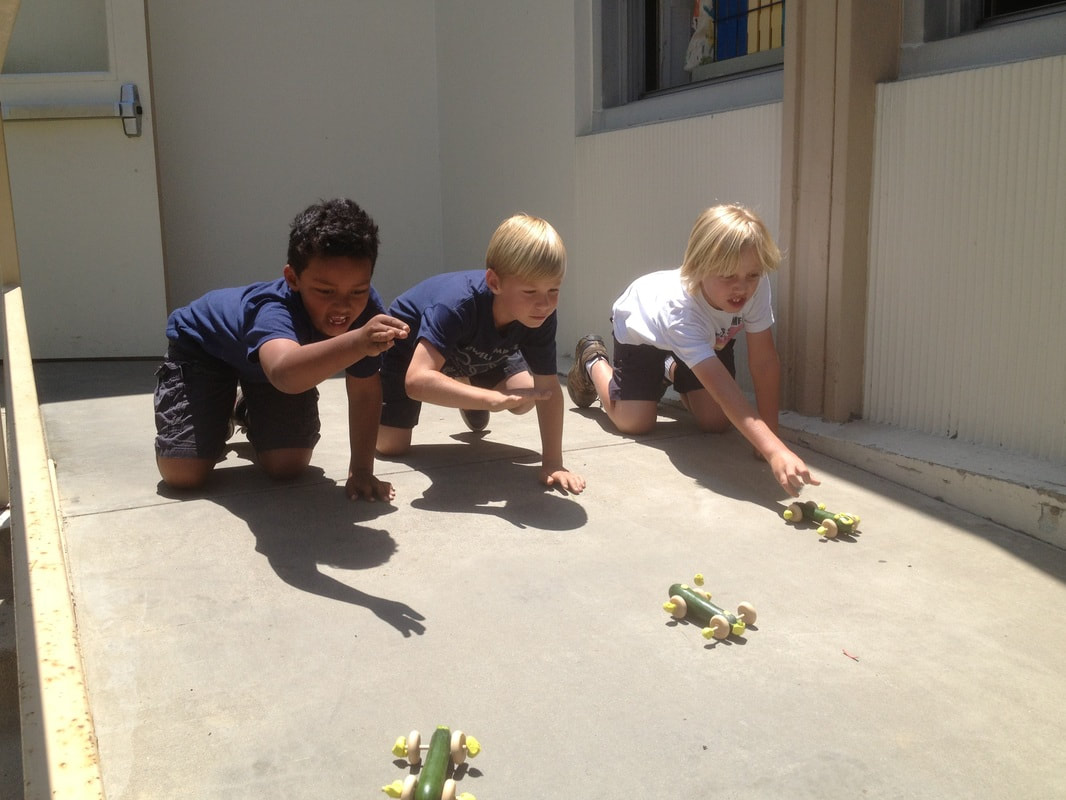Our Garden Learning Program at a Glance
|
We teach our monthly lessons in the safe and nurturing gardens that we maintain at each partner school site. Our TK-8 curriculum provides outdoor garden, science, and sustainability lessons during the school day that support a broad range of CA Content Standards, including Language Arts, Science, History-Social Studies, and Visual Arts. Our one hour lessons are designed to reinforce what students are learning in the classroom, providing important hands-on experiences in the context of the natural world. Lessons also support the Common Core and Next Generation Science Standards by engaging students in research-based thinking routines designed to help scaffold learning through observation, explanation, reasoning, making connections, considering different viewpoints, and wondering.
A sample garden lesson can be found at the bottom of the page. Here is a highlight for each grade level: Transitional Kindergarten
• Our youngest learners experience a broad range seasonal eating activities that promote fine motor skills (through cooking and serving themselves), food exploration, and an understanding of where food comes from. Kindergarten
• Students witness first-hand the miracle of life as they hatch chickens in their classrooms (teacher support and budget permitting). The newborn chicks stay in the classroom for a week during which time students hold the chicks and teachers use this high-interest subject matter as a topic for learning across the academic standards. 1st Grade
• Students learn to value nature as a wellspring of good ideas in an approach called biomimicry. Using cue cards such as “grab on,” “create color,” and “move,” students hunt and gather around the schoolyard for ideas about the work nature does. 2nd Grade
• Students discover how food makes its way from the soil to our kitchen tables by planting a vegetable “farm”, eventually harvesting, cleaning, pickling, packaging, and labeling their produce according to California requirements. These pickled vegetable jars are taken home to share with their families. 3rd Grade
• Children learn that healthy soil is a valuable natural resource that contains a complex community of bacteria, microbes, fungi, worms, grubs, bugs, and slugs. Students collaborate in soil-based experiments to test for critical macronutrients and make informed decisions about amending and improving soil chemistry. 4th Grade
• Students build small solar ovens and attempt to cook nachos, demonstrating how to successfully convert light energy into heat energy. This lesson offers opportunity for engineering design and problem-solving in a fun and engaging format. 5th Grade
• Students explore nature's cycles and the important role of decomposers by learning about vermicomposting and observing the work of red wiggler worms. Middle School
• Our Food for Thought series helps students explore and debate the concept that eating is an ecological act. Over several lessons, children examine the connections between the food we eat, the health of our bodies, and ultimately the health of our communities and the land that sustains us. Lessons cover nutrition, food cost, food waste, and food access/deserts through hands-on activities like deconstructing a fast food meal, making carrot-top pesto, and calculating cost-per-calorie for a variety of common foods. The end goal is to develop tools for making balanced choices when deciding what to eat. Sample Garden LessonThis lesson is from our 1st grade curriculum. Like all of our lessons, it is designed to be a meaningful outdoor experience that reinforces grade-level classroom learning.
| |||
